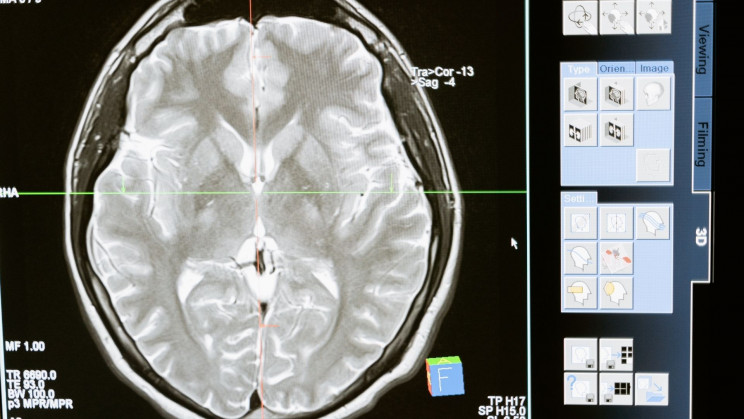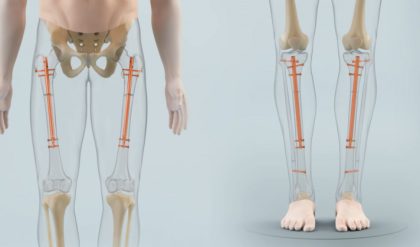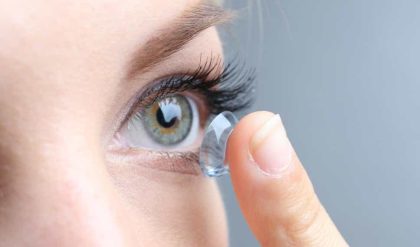
Sleep deprivation affects almost all bodily functions, and prolonged sleep insufficiency can cause serious problems such as high blood pressure, cardiovascular issues, diabetes, lowered immunity, etc. For the human body, sleep holds the same importance as food and water as we can’t live without it. Sleep maintains the body’s energy level and enables cells and tissues to heal themselves and overcome any minor damage.
Unfortunately, for many, a modern lifestyle also favors late nights, early starts, and shift work, all of which can increase the risk of sleep deprivation-related health issues. This affects especially younger people. According to a report from the Center for Disease Control and Prevention (CDC), one out of every three adults in the U.S. admits to not having enough sleep. Avoiding a full night’s sleep for a couple of days may not bring any serious harm, but if you are sleeping less on a regular basis, then sooner or later it could lead to physical damage or neurological disorders.
Sleep deprivation: meaning, causes, and symptoms
It is often recommended that healthy adults should get somewhere between seven and nine hours of sleep a day. For children, the recommended amount of sleep falls between nine to 12 hours. Anyone who gets less sleep than they need to stay healthy, or whose sleep is disturbed to the point where it prevents them from getting the full night’s sleep they need, may be facing sleep deprivation, which is also known as sleep deficiency or sleep insufficiency.
For busy people or those with irregular working hours, one cause of sleep deprivation may be that they are unable to give sleep the importance it deserves. Phyllis C. Zee, a neurology professor from Feinberg School of Medicine, Chicago, explains that when people have to stay awake and work under artificial lighting during the night, their internal body clock can become disturbed and behave the way it does during daylight. This change can eventually lead to insomnia and reduced sleeping hours.
However, apart from those who choose to stay awake late, there are a number of other major factors that could lead to sleep deprivation.
Late-night office work sometimes becomes a necessity because there are deadlines that you can’t afford to miss. However, if you develop a habit of working late at night, then in long term, this may increase stress, reduce focus and lead to disorders such as anxiety, sleep apnea (abnormal breathing pattern during sleep), etc.
Of course, many people do not have a choice of when to work and are sometimes forced to work irregular hours or on overnight shifts. People who work in shifts or have irregular job hours (more than 20 million Americans work in shifts) are much more likely to suffer from insomnia, SWSD (shift work sleep disorder), and other sleep-related issues.
A survey conducted by Better Sleep Council in 2019 suggests that the incidence of sleep deprivation is higher in those in lower-income brackets. In the survey, more than 60% of Americans who admitted to having inadequate sleep were also found to be stressed due to unstable financial conditions. People who earn less are also more likely to be engaged in shift work and to have more than one job.
Those who suffer from health issues such as depression, insomnia, kidney or urinary issues, sleep apnea, or poor digestion, may also be more likely to also suffer from sleep disturbances. For these people, even if they are getting more than seven hours of sleep, they may not be getting quality sleep and so wake up unrested.
Watching movies, news, or television late at night, drinking coffee or other caffeine-based products in excessive amounts, pulling an “all-nighter” at school, or attending late-night events are just a few common lifestyle choices that can have a negative impact on our sleep.
Some of the most common symptoms from this type of occasional sleep deprivation are morning headaches and body pain, decreased attention level, irritation, daytime dizziness, dry mouth, loud snoring, mood swings, common cold, etc.
How sleep deprivation becomes dangerous in long term?
Those who suffer from sleep deficiency from a young age might be less likely to consult a health expert early on because the initial symptoms of sleep deprivation seem relatively normal, and most of the time people ignore them. However, the actual health risks start to show up when sleep deficiency is continued for an extended period of time and turns into chronic sleep deprivation.
Some of the serious health risks that occur due to chronic sleep deprivation are as follows:
During sleep, your blood pressure lowers in a reaction referred to as the “nocturnal dip”. While it is not known exactly what causes this, according to some studies, the less you sleep, the greater your chances of high nighttime blood pressure, and people who sleep six hours or less may have steeper increases in blood pressure. In addition, if you already have high blood pressure, sleep deficiency could make this worse. This not only puts an extra load on the heart but also affects your body’s ability to maintain optimum blood sugar levels. potentially increasing the risk of stroke, diabetes, cardiac arrest, and other ailments.
Sleep deprivation can cause the thickening of blood vessels, arteries, and ventricles in the heart that eventually leads to heart failure. A study published in the European Journal of Preventive Cardiology in 2017 also found that people who suffer from sleep deficiency were more likely to suffer from heart attacks and other cardiovascular problems than people who get enough sleep. Therefore, it seems that good sleep is essential for keeping your heart and blood supply network healthy.
According to a recent study conducted by researchers at the National Institute of Health (NIH), the sleep-wake cycle in our body, also known as the circadian rhythm, plays a critical role in maintaining a healthy immune system. The production and release of antibodies and cytokines, which regulate the immune response, occur at optimum levels if there is a minimum disturbance in our circadian rhythm. Moreover, reduced amounts of sleep can cause a negative impact on immune system functions such as leukocyte mobilization and T-cell differentiation.
Sleep deprivation has also been linked to obesity. One reason may be that sleep is an important modulator of neuroendocrine function and glucose metabolism. Studies have shown that prolonged loss of sleep can result in changes to the metabolic and endocrine systems, including decreased glucose tolerance, decreased insulin sensitivity, increased concentrations of cortisol, and increased hunger and appetite. A chronic lack of sleep may also lead people to feel too tired to exercise.
The proper secretion of testosterone and growth hormones may also require sleep as well. These hormones are necessary for many important physiological activities related to the development of bone mass, tissue repair, and reproductive health. Developing a habit of staying awake at night may lead to hormonal imbalances. So, if you are experiencing health issues such as rheumatoid arthritis, baldness, or low sex drive, sleep deprivation can make your situation worse.
Depression, anxiety, stress, memory loss (both short-term and long-term), bipolar mood disorder, schizophrenia, hallucinations, and many other psychological ailments have been found to be connected with sleep quality and time, both directly and indirectly.
REM sleep, in particular, may play an important role in maintaining mental health. During REM (rapid eye movement) sleep, brain activity increases, your eyes dart around quickly, and your pulse, blood pressure, and breathing speed up. This is also when you do most of your dreaming. REM sleep is important for learning and memory. REM cycles are thought to hold significance for emotional well-being because during sleep they allow your brain to effectively process all of the experiences that you had during the day. Thus, the lack of sufficient REM sleep may be especially harmful to the consolidation of positive emotional content.
Ways to overcome sleep deprivation
The easiest way to avoid sleep deprivation is to get a consistent seven to eight hours of sleep every day, but many people, including those who suffer from physical or psychological issues, those who need to work irregular hours or shifts, teens, or parents of newborns and young children, may find it difficult to achieve this.
However, sleeping time is not the only thing you need to keep in mind when you are dealing with sleep deprivation. Sleep quality also plays a major role in keeping you free from sleep disorders. According to researchers, if you are actually asleep for at least 85% of the total time you intend to sleep, then you are having quality sleep.
Here are some simple ways by which you can increase your sleep quality and decrease your risks of sleep deficiency:
- Do not use your laptop, smartphone, or any other gadget, including TV for at least two hours before sleeping (if not possible, then avoid using them right before you go to bed). This rule also applies when you wake up, so instead of updating your WhatsApp status first thing on waking, it might be better to do yoga, meditation, or exercises. In fact, research also shows that some meditation techniques are very helpful in improving sleep quality.
- Setting up a strict bedtime and wake-up schedule and really following it (on weekends also) can help your body to maintain a healthy circadian rhythm.
- According to the Sleep Foundation, if you regularly nap, duration is important. They suggest that around 10 minutes is considered the best nap duration. This allows you to catch a quick rest without entering slow-wave sleep, which can leave you feeling excessively groggy after waking. The time of day for napping is also important. Most sleep experts recommend napping no later than 2 pm. This is because napping at an earlier time results in a combination of light and REM sleep, whereas napping after 2 pm tends to result in more slow-wave sleep. If you find yourself feeling groggy after 2, try exposure to bright light instead of a nap – this can have a similar energizing effect.
- Try to avoid drinking coffee or other caffeine-based beverages within six hours of sleeping. Unsurprisingly, many people have the habit of taking coffee after their meal, which is not a healthy practice at all because this can adversely affect the process of mineral absorption in the body. For quality sleep, health experts also recommend a gap of few hours between dinner time and bedtime.
- Similar to caffeine, drinking alcohol also reduces sleep quality and time. Too much alcohol too close to bedtime may cause an imbalance of your body’s circadian rhythm.
These solutions may seem pretty basic but they are very effective in treating sleep deficiency at an early stage. Applying these simple lifestyle rules may help you to avoid chronic sleep deprivation and some of the health risks associated with lack of sufficient sleep.





